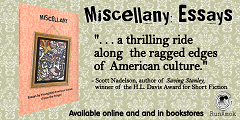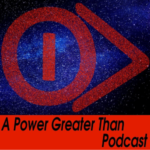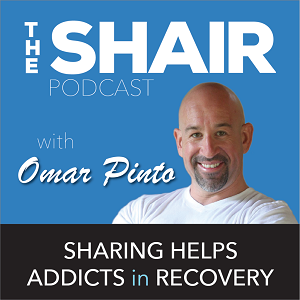Happy Place
I taught Hemingway’s The Nick Adams Stories this fall.
The collection of shorts revolves around the character Nick Adams, Hemingway’s most autobiographical incarnation. Like Hemingway, Nick Adams grew up in Illinois and Michigan, fought in the First World War. Adams was the son of a doctor like Hemingway. There are enough similarities and overlapping characters that the reader can assume Adams is Hemingway’s literary avatar.
The short story On Writing proves this is true. At least, it proves Hemingway wanted his readers to believe it was true. That story is very self-referential. It describes Nick’s writing aesthetic. Of all the short stories, On Writing is the most thinly veiled. Adams reveals Hemingway’s creative philosophies and admits that he has never done things—such as witnessing a Native American birth—that the character Nick has done in other stories. Adams also narrates that, roughly speaking, the writing is only good if it is totally made up, that writing “the actual” kills all the fun.
This presents a conundrum. Do we assume this is Hemingway who has never seen a Native American birth? If it is Hemingway and not Nick Adams narrating, than how do we believe a writer who claims anything good must be entirely made up? Why does the thing need to be total fiction to discover the truth of the author behind it?
Sorry for the literary aside. Other than this blog, teaching is my only creative outlet at the moment. As a result, I am thinking about stories I’ve taught for years in a new light. It’s making me a better teacher. I am certainly creating more difficult and elusive prompts than ever before.
Hemingway uses scenery in his stories to convey the complex nature of Nick Adams.
Nick has his innocence when he is camping with his sister in the virgin forest, a land of untouched wilderness. Like the landscape, Nick’s psyche is pristine. While at war, he daydreams about that land and the fishing trips he took there. My students like to call it his “happy place.”
We all need that—a happy place.
When Nick returns home from the war—and metaphorically as a result of the war—this untouched wilderness that Nick loved has burned. There is no more virgin forest just as there is no more innocence for the character. All that remains is the charred over hillside—read war trauma.
This made me think of my own happy place.
I can’t help but flashback to Billy Madison here, the Adam Sandler character who calmed his mind in order to find his golf stroke. There is a precedent for this. It is what R. Junah, the golfer in Pressfield’s The Legend of Bagger Vance uses to find his stroke. Certain sports require this sort of mental discipline. And while I am no golfer, I have stood on the foul line enough to know what it means to be in the zone.
It is important to have a happy place because, well, our mind is all we have.
If you haven’t confronted your own mind yet, you will. I was losing my own battles with mental health and drank and drugged to cope. There will come a time in every person’s life when he must face the whole of who he is.
So where is your happy place?
Where do you go for calm when chaos whirls its frantic storm?
Where does a teacher go when he has to proctor a four-hour exam?
That last one is always a good test for me. Where will my own go on National Testing Day for those four idle hours?
My happy place is poetry.
I can sit for hours, reciting and cataloging poetry in my mind. I see how many poems I have fully memorized, take a mental note of which ones I don’t. I can return to those later.
The process usually takes two hours. Of course, I have to tend to things while I proctor: answer questions, give announcements, read my script from the testing booklet. This causes me to repeat many poems and go back over the order in which I’m thinking of them.
This may seem like a colossal waste of time. Maybe it is. But I think the bigger waste of time would be allowing the hamster in my mind to spin its wheel for two hours without any check.
What if I were stranded on a deserted island? I think I could come up with sufficient use of headspace to stay sane for some time.
I never knew my grandfather.
But I learned that he had a secret love of poetry. He fought in Japan during World War II. One of those guys who came home having lost half his battalion but never whispered a word about his time overseas. He read poetry every day. I never met him.
Recently his old hunting jacket came into my possession—a generous gift from my uncle who was scaling down before his move.
Today, my school celebrates heritage. Everyone is encouraged to wear clothes that embody his culture and ancestry. I am wearing his jacket.
I feel honored.
In front of each class, I stand and explain who my grandfather was, and how, although I never met him, his life example and love of poetry still inspires me.
And I recite his favorite poem, one that I keep in my happy place for just such an occasion. It is by Sam Walter Foss.
“Let me live in my house
By the side of the road
Where the race of men go by—
They are good, they are bad, they are weak, they are strong,
Wise, foolish—so am I.
Then why should I sit in the scorner’s seat
Or hurl the cynic’s ban?
Let me live in my house by the side of the road
And be a friend to man.”
-Sam Walter Foss’ The House by the Side of the Road
It’s not only war veterans—my grandfather, Ernest Hemingway, R. Junah—who need to find sanctuary in their own mind. It is a requirement of the human condition. Maybe it is surviving a four-hour proctoring duty. Maybe it’s maintaining while a back up on the beltway brings your commute to a two-hour stand still. Maybe it’s when the clerk at the DMV sends you home to get your water bill as one last proof of address.
Or maybe it’s when you lose someone. Someone close. Maybe it’s when you’re 12 years clean and you smell reefer on the street corner, and think about how easy it is in this day and age to get a cannabis card. Maybe it’s when someone hurts you; or, what can be worse, when someone hurts someone you love.
We all need our happy place.
I hope you find yours. And I hope that you cultivate it with patience, like a garden. And I hope it always returns to bloom.

 Previous Post
Previous Post Next Post
Next Post












I think my happy place is walking outside, taking nature photos!
I’m always happy doing that, unless I’m freezing!
Lol
xo
Wendy
I imagine this is not a time to be outside in MN. What’s your indoor happy place? 😆
Your writing always encourages and inspires me. I like committing poetry to memory as well. It’s calming to me to recall it wherever I am.
How cool! It’s good to know I’m not the only one.
Appreciate your comment Suzanne. Thank you.